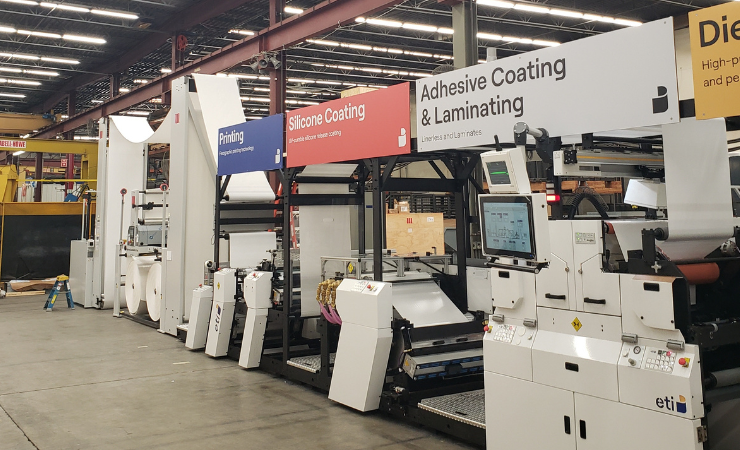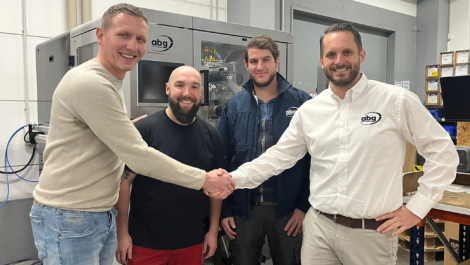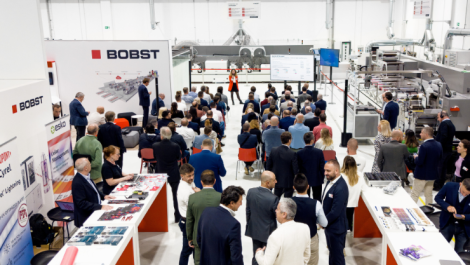Martin Automatic, ETI and Lemu are planning a collaboration at Labelexpo Americas next month that it is claimed will deliver a trade show first: the live manufacture of a pressure-sensitive labelstock job that will subsequently be delivered directly to its end use customer.
An integrated production line will see twin 26-inch-wide webs (660mm) of face stock and pre-siliconised liner transported from a pair of Martin’s MBS automatic butt splicers into an ETI Converting Cohesio coater/laminator, where adhesive will be added to create the labelstock, then die-cut, before the web passes above an aisle between exhibition booths, arriving at Lemu’s GTU turret rewinder and UltraCompact end of line automation, where the label material will be slit into narrow lanes and rewound, and then unloaded and boxed for delivery. A Lundberg matrix removal system will also be attached to the ETI Cohesio.
The job itself is being manufactured on behalf of US label converter Channeled Resources, which has sold the job to one its clients. It is expected that three pallets of material will be shipped each day.
‘We are not producing label stocks for the fun of it. The most significant thing is that a label converter is trusting us three OEMs with a sold production job,’ Gavin Rittmeyer, VP for sales & marketing at Martin, told FlexoTech.
‘It allows us to show how tight the integration is from one company to another. More and more people are wanting to create label stocks, die cut and finish inline, so we are showing that it can be done, and with such a level of expertise that a converter is trusting us to do it live for them. We are indebted to Channeled Resources for their trust and belief in what automated integration can offer.’
Martin, ETI and Lemu have been working collaboratively for several years, with the integration that will be shown at Labelexpo being a consequence of that co-operation.
Mr Rittmeyer said the project would show how combining technology can be ‘a risk-free investment where the integration is safe and secure’. He added, ‘We see this as an holistic approach to production going forward, that will allow the end-user to focus on his or her own individual business model.’










